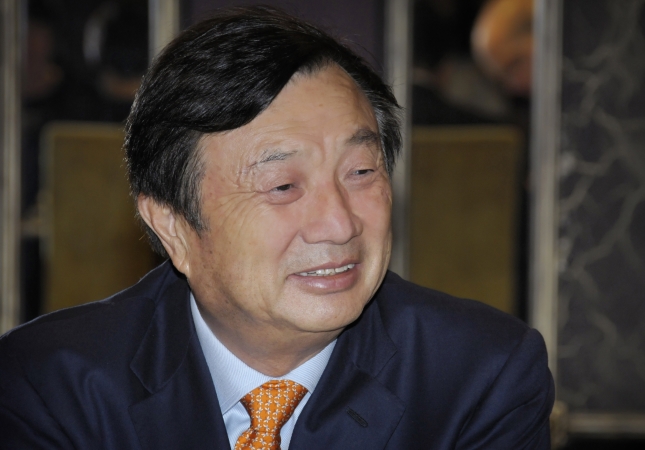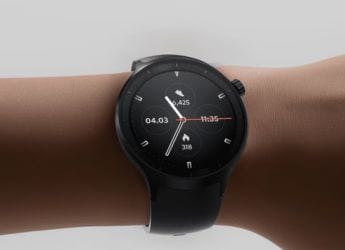- Home
- Telecom
- Telecom News
- Huawei founder gives first ever media interview
Huawei founder gives first ever media interview

Until Thursday.
During a visit to the company's New Zealand operations, Ren sat down with four local journalists at a Wellington hotel. The rules were strict no international media, no photos.
But the meaning was clear. Huawei is taking steps toward trying to dispel its image as a secretive and opaque company, and to reassure the world of its good intentions.
The telecommunications equipment company has suffered business setbacks in the U.S. and Australia due to fears it could be a security risk. Last October, a U.S. congressional panel recommended telephone companies avoid doing business with it. Huawei issued a pledge not to cooperate with spying, and argues the U.S. is engaging in trade protectionism.
Huawei has grown rapidly in developing countries and is increasing its sales in Europe. Last year, it reported a $2.4 billion profit on sales of $35 billion.
Ren, 68, a former Chinese military engineer, declined through spokesman Scott Sykes to be interviewed by The Associated Press. Sykes said Ren felt more comfortable with a small group of journalists and chose New Zealand to break his silence because he has strong, positive feelings about the country "in his heart."
In his interview, Ren, speaking through an interpreter, told reporters his company's relationship with the Chinese government was no different from that between companies from other countries and their governments, according to a report by Fairfax Media.
Ren said he was confident no member of Huawei's staff would engage in spying, even if asked to by Chinese security agencies. He said he'd joined the Communist Party in 1978 when it was expected all "exceptional" people would do so.
"At that time my personal belief was to work hard, dedicate myself or even sacrifice myself for the benefit of the people," he said, according to Fairfax Media. "Joining the Communist Party was in line with that aspiration."
Sykes said the company is trying to tell its story and dispel misinformation. He said that's particularly important as Huawei moves from doing business only with other phone companies toward selling products such as smartphones directly to consumers.
New Zealand was the first developed country to sign a free trade agreement with China in 2008 and has developed close economic ties since then.
Huawei employs about 120 people in New Zealand. Last year it won a contract to work on the country's broadband infrastructure - something it was denied in neighboring Australia - and this year it won a contract to help build a mobile network.
Ren owns 1.4 percent of Huawei. Forbes magazine last year estimated his wealth at $475 million.
Catch the latest from the Consumer Electronics Show on Gadgets 360, at our CES 2026 hub.
Related Stories
- Samsung Galaxy Unpacked 2025
- ChatGPT
- Redmi Note 14 Pro+
- iPhone 16
- Apple Vision Pro
- Oneplus 12
- OnePlus Nord CE 3 Lite 5G
- iPhone 13
- Xiaomi 14 Pro
- Oppo Find N3
- Tecno Spark Go (2023)
- Realme V30
- Best Phones Under 25000
- Samsung Galaxy S24 Series
- Cryptocurrency
- iQoo 12
- Samsung Galaxy S24 Ultra
- Giottus
- Samsung Galaxy Z Flip 5
- Apple 'Scary Fast'
- Housefull 5
- GoPro Hero 12 Black Review
- Invincible Season 2
- JioGlass
- HD Ready TV
- Laptop Under 50000
- Smartwatch Under 10000
- Latest Mobile Phones
- Compare Phones
- Tecno Spark Go 3
- iQOO Z11 Turbo
- OPPO A6c
- Samsung Galaxy A07 5G
- Vivo Y500i
- OnePlus Turbo 6V
- OnePlus Turbo 6
- Itel Zeno 20 Max
- Lenovo Yoga Slim 7x (2025)
- Lenovo Yoga Slim 7a
- Lenovo Idea Tab Plus
- Realme Pad 3
- Garmin Quatix 8 Pro
- NoiseFit Pro 6R
- Haier H5E Series
- Acerpure Nitro Z Series 100-inch QLED TV
- Asus ROG Ally
- Nintendo Switch Lite
- Haier 1.6 Ton 5 Star Inverter Split AC (HSU19G-MZAID5BN-INV)
- Haier 1.6 Ton 5 Star Inverter Split AC (HSU19G-MZAIM5BN-INV)

















